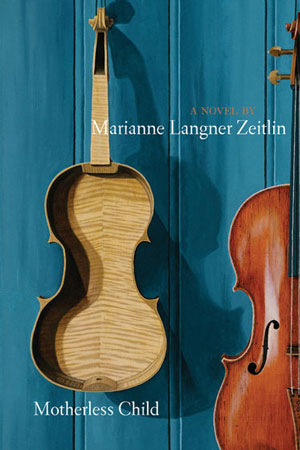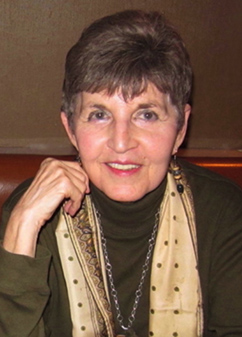
MOTHERLESS CHILD
Reading Guide
Discussion Questions for Motherlesss Child
1. Discuss the factors that lead Elizabeth Guaragna to apply for a job with Alfred Rossiter, even though she has a good job that she likes.
2. What are the reasons, both psychological and practical, that impel Rossiter to hire her?
3. The author writes about Dominic Guaragna (in Chapter II): “Grievance was holy, second only to music. But whereas with music he was both slave and master, with grievance he was only slave.” Keeping those lines in mind, discuss Dominic’s character and his relationship with Elizabeth.
4. The tension between overpowering silences and sound—in particular, music—comes into play in several parts of the book. Elizabeth’s childhood home is “a house of silences upon silences,” and certain names were never to be uttered. But it was also filled with music, which, in her father’s words, “unfreezes the imagination.” There are other silences in the book, particularly when Lisa’s deception about who she is threatens her relationship with George. Discuss the roles that silence and music play in the novel.
5. The piano piece Traumerei (usually translated as “Dreaming”), by Robert Schumann, comes from a longer set of pieces called Kinderszenen, or “Scenes from Childhood.” Listen to Traumerei; there are numerous recordings that one can hear on the Internet, and it lasts only about three minutes. What is the significance of the piece in Elizabeth’s life, and why might Dominic have chosen to play it every night?
6. What role does Ada Guaragna play in Elizabeth’s life? How do her revelations about Rossiter (in Chapter VII) affect Lisa? How did they affect you?
7. What factors in George Wentworth’s personal and professional background might explain his adulation of Alfred Rossiter? What causes Lisa to repel George Wentworth’s advances from the outset?
8. What are the similarities and differences in the two major sibling relationships in the novel: that of George and his sister Maggie, and that of Elizabeth and her brother Tom?
9. Discuss the other women in Rossiter’s life: Ruth Pryor, the imperious loyalist who comes out of retirement to help him get the new agency started; Virginia Lavin, the one-time singer who had hoped for an operatic career, went into music management instead, and frequently wears a Metropolitan Opera necklace that Rossiter had given her; and Dolores, his third wife, who spends most of her time drinking to escape her loneliness and misery. Discuss what we know about Rossiter’s feelings toward each of these women. What has inspired such extreme loyalty by Ruth and Virginia, and such extreme dissatisfaction by Dolores?
10. Discuss the business side of the classical music world as described in the book. What are the struggles of the musicians, and what are the challenges of the managers? Why does Elizabeth work so hard to help establish the career of Helge Nielsen? What might have happened to her idealism had his concert never been reviewed? How have business practices changed since the 1970s?
11. The book is about two interlocking quests: Lisa wants to learn about her mother by getting to know Rossiter; George wants to learn about Rossiter, in part by tracking down some of the Guaragnas. How do these two quests affect each of the main characters in the novel?
12. The book is also about a deception: Lisa changes her identity to get the job with Rossiter. Discuss the role of deception in other aspects of the novel. Who else deceives? How have deceptions affected and shaped Lisa’s life? Rossiter’s life? Other members of the Guaragna family? How does Lisa’s sense of her own identity — both as Elizabeth Guaragna and as Lisa Sullivan — shift as the deceptions are revealed? What questions does the novel raise about deception, identity, truth, betrayal and love?
13. Toward the end of Chapter XVI, Elizabeth walks on a snowy afternoon near George Washington Bridge, thinking about the chapter she has just read in George’s manuscript about her mother and Rossiter. What might the bridge, that disappears and appears in the snow, convey symbolically at this point in Lisa’s life? What bridges does she need to cross? Similarly, when she and George walk in the snowstorm in Chapter XX, how do their disappearing footprints evoke the history of Rossiter and his wife that they are searching for?
14. After Lisa visits the New York Public Library (Chapter XVII) to find the articles about the custody battle, she says to the reference librarian, “But no heroes or heroines peopled this story…neither did villains.” How has her perspective changed from the outset of the book?
15. What impact does the title of the book have on Rossiter and on Elizabeth?
AVAILABLE NOW
Click here to order



© 2014-2015 Marianne Langner Zeitlin
